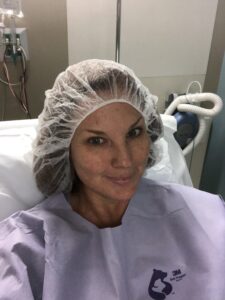 Embarking on a surgical journey can be a profound experience, one that necessitates not only physical resilience but also mental fortitude and emotional balance. Believe me, if I am counting correctly, I’ve already had fourteen and I haven’t yet reached 50. Amidst the challenges and uncertainties, maintaining a sense of motivation and prioritizing your health are paramount. In this article, we’ll explore practical strategies to help you stay motivated and foster wellness as you navigate through surgery and recovery.
Embarking on a surgical journey can be a profound experience, one that necessitates not only physical resilience but also mental fortitude and emotional balance. Believe me, if I am counting correctly, I’ve already had fourteen and I haven’t yet reached 50. Amidst the challenges and uncertainties, maintaining a sense of motivation and prioritizing your health are paramount. In this article, we’ll explore practical strategies to help you stay motivated and foster wellness as you navigate through surgery and recovery.
- Cultivate a Positive Mindset: A positive mindset serves as a powerful catalyst for healing. Approach your surgical journey with optimism and faith in your body’s ability to recover. Visualize a successful outcome and affirm your belief in your capacity to overcome obstacles. Practice gratitude daily, focusing on the blessings in your life and the support systems available to you. Cultivating a positive mindset not only enhances your psychological well-being but also promotes physical healing.
- Set Clear Health Goals: Establishing clear health goals provides a roadmap for your recovery journey. Collaborate with your healthcare team to define realistic and measurable objectives tailored to your individual needs and circumstances. Whether it’s achieving specific mobility milestones, managing pain effectively, or improving dietary habits, articulate your goals and track your progress diligently. Celebrate each milestone as a testament to your strength and resilience.
- Prioritize Nutritious Eating: Nutrition plays a pivotal role in promoting healing and vitality. Prioritize a balanced and nutrient-dense diet rich in fruits, vegetables, lean proteins, and whole grains. Aim to consume foods that support immune function, reduce inflammation, and facilitate tissue repair. Stay hydrated by drinking an adequate amount of water throughout the day. Consider consulting with a registered dietitian for personalized dietary recommendations tailored to your surgical needs.
- Engage in Gentle Movement: While rest is essential for recovery, incorporating gentle movement into your daily routine can enhance circulation, alleviate stiffness, and promote overall well-being. Begin with low-impact activities such as walking, stretching, or gentle yoga, as guided by your healthcare provider. Listen to your body’s signals and gradually increase the intensity and duration of your physical activity as you progress. Exercise not only strengthens your body but also uplifts your spirits and boosts your energy levels.
- Embrace Self-Care Practices: Self-care is a non-negotiable aspect of your recovery journey. Dedicate time each day to nourish your mind, body, and soul. Engage in activities that promote relaxation and stress reduction, such as meditation, deep breathing exercises, or aromatherapy. Treat yourself to soothing baths, massages, or quiet moments of reflection. Set boundaries and prioritize activities that replenish your energy and foster inner peace.
- Seek Support and Connection: Navigating surgery can feel overwhelming at times, but you are not alone. Reach out to friends, family members, and support groups for encouragement, empathy, and practical assistance. Share your concerns and emotions openly, allowing yourself to be vulnerable in the presence of those who care about you. Lean on your healthcare team for guidance, reassurance, and personalized support throughout your recovery journey.
Dealing with surgery requires courage, resilience, and a commitment to nurturing your well-being. By cultivating a positive mindset, setting clear health goals, prioritizing nutritious eating, engaging in gentle movement, embracing self-care practices, and seeking support and connection, you can navigate your surgical journey with grace and resilience. Remember to be patient with yourself and honor the progress you make, however small it may seem. Your journey toward wellness is a testament to your strength, courage, and unwavering determination.



